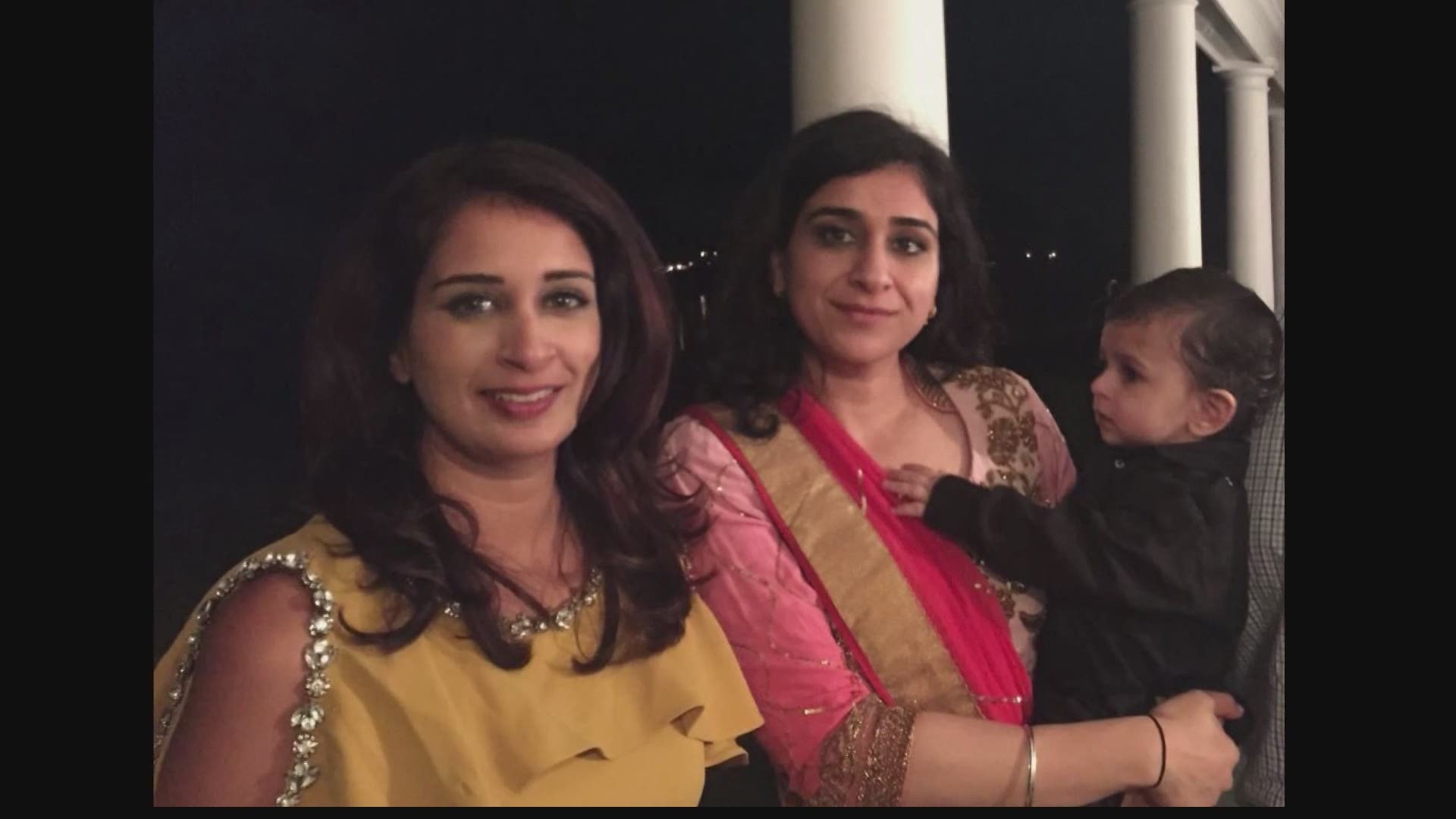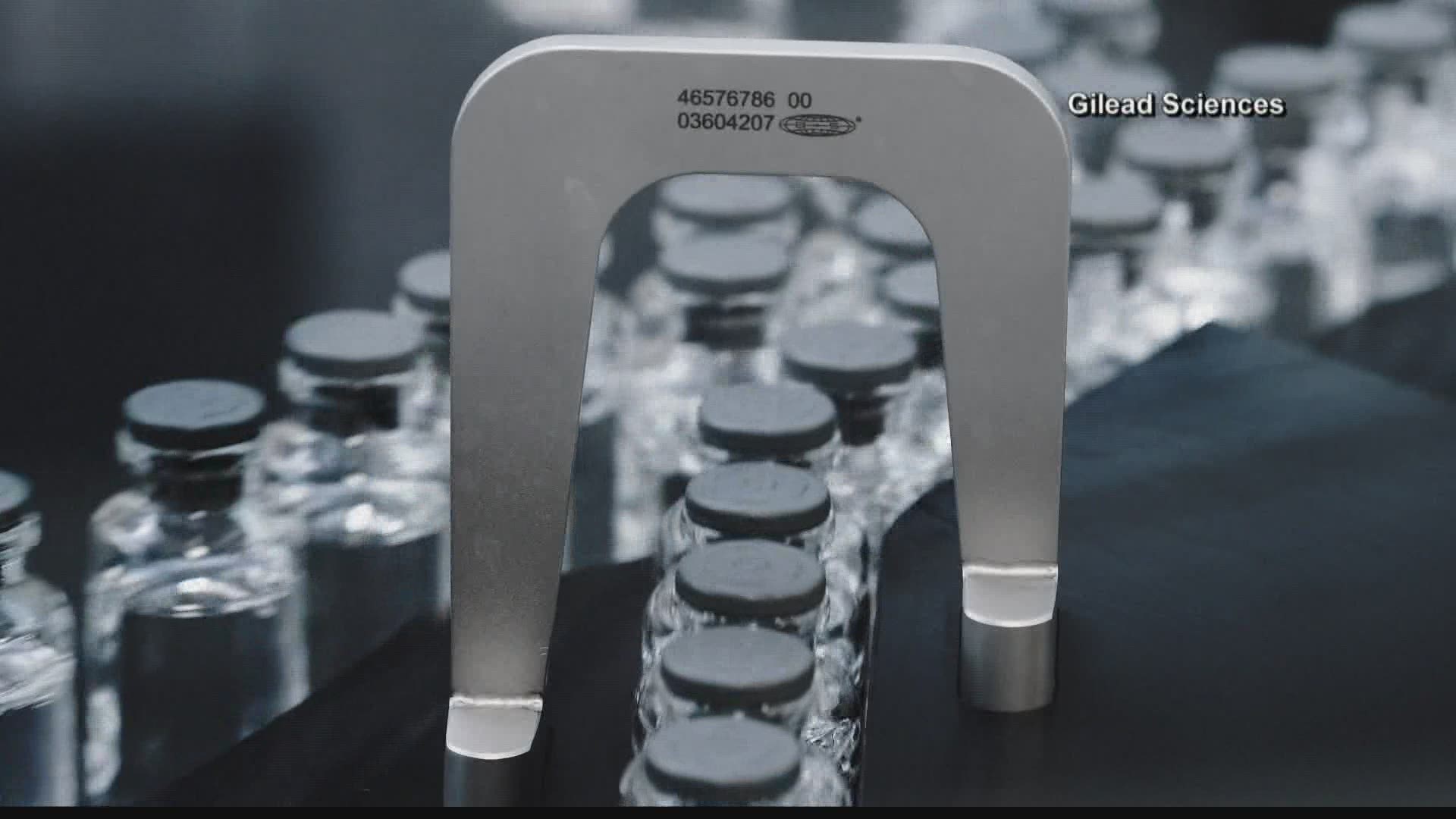WESTCHESTER, N.Y. — In the middle of a crisis some of us get to see friends and family members turn into superheroes.
For the I-Team’s PJ Randhawa, that hero is her big sister, Dr. Neelu Randhawa.
The doctor is treating COVID-19 patients in Westchester, New York, a town that has been an epicenter for the pandemic.
Dr. Randhawa found the time to give her sister an inside look at the life of a doctor working in a medical emergency that most hospitals have never seen before. Her days right now are focused on her work.
The life of a doctor in the pandemic
“Honestly, all the days seem like a blur,” said Dr. Randhawa.
On a recent Zoom call, she showed off what she has to wear every day. When she works with patients she wears a full protective gown, an N95 respirator mask, eye goggles, a hair cover provided by volunteers and a surgical cap.
“It can be pretty scary. They can't see you, you can't see them really well. Your eyes are covered, your nose is covered,” explained Randhawa.
All of that gear is meant to protect doctors and patients from an indiscriminate killer.
“Surprisingly, we've been seeing a lot of younger patients, patients in their 20s, 30s, 40s. So, it really doesn't spare anybody,” Randhawa said. “You are literally fighting for your breath.”
As of the end of April, the total number of cases in Westchester County is more than 25,000. The area has lost more than 1,000 residents to COVID-19. When the coronavirus pandemic came to Randhawa’s hospital, everything changed.
“We were a little bit fearful,” she said. “I just remember there being a lot of things on the floor, as funny as that sounds. Gowns on the floor, gloves on the floor.”
“Whenever someone is in distress, the call is rapid response,” she added. “It was almost every 30 minutes... rapid response, rapid response, rapid response.”
Randhawa said doctors working in the pandemic must put the thought of getting sick aside as they help others. That’s especially appropriate for the Randhawa family, whose last name means “first into battle” in their ancestral language, Punjabi.
“Physically, you try to protect yourself as well as you can, but mentally it can be difficult sometimes. You can't go in with that fear. You have to go in thinking, ‘I did the best I can and now I have to do my job,’” Randhawa said.
It’s harder to protect the family that Dr. Randhawa went home to every day. She has a son and daughter, both under the age of 4.
“As the cases were increasing, and we were reaching the peak, I made the decision to isolate. The week I'm on, I don't come home,” said Randhawa. “In the grand scheme of things, yes, it's a few weeks out of my life, it's hard, but it's worth it and I know why I’m doing it. And I know when they grow up, they'll understand why I did that for them.”
A life’s journey into a hotspot
Dr. Randhawa couldn’t have planned to be right where she was needed during the coronavirus pandemic. But she always wanted to be where the biggest need was, even considering service with Doctors Without Borders.
She started her medical career in the Midwest as a resident at hospitals in Kansas City and Chicago. Since then, she’s practiced in Indiana, California and New Mexico.
So, by chance, Randhawa had settled down in the county where the first New York resident tested positive for COVID-19 on March 2. On March 10, officials in the Westchester County city of New Rochelle announced a “containment area” and National Guard assistance to help contain the outbreak.
Randhawa has seen at least a dozen of her patients lose their lives to the virus. The effects of COVID-19 have been unpredictable, with cases taking a turn for the worse rapidly.
“There are times I thought, 'I'm going to be discharging this patient tomorrow, she looks great,’” she recalled. “And the next day I come in, this patient is in the ICU, intubated, on a ventilator.”
“A lot of these patients, in their last moments, we FaceTime... to be able to communicate with families and they can see their loved one,” she added.
RELATED: St. Louis nurse's iPad fundraiser connects families with their loved ones dying from COVID-19
Signs of hope in a pandemic
As of May 1, new cases in Westchester are falling. For the first time in a month, positive tests for COVID-19 in the county have fallen below 400 per day.
Randhawa is thankful that hospital admissions are decreasing. She’s already looking to the future and how the hospital will handle another crisis. Like many health professionals, she’s worried about their supply of masks, gloves and other essentials.
“We've learned a lot of things, but I think the main thing is that we need to be better prepared and have more equipment stockpiled and more on hand so if this does unfortunately happen again, we are ready and not so dependent — not in a state where doctors don't have N95 masks or have to reuse their mask several times a week, or they're wearing trash bags as protective equipment,” Randhawa said.
PJ said her sister’s passion for being on the front lines doesn’t surprise her. She described her sister as someone who “loves being where the action is,” calling her both brave and stubborn.
Dr. Randhawa said in spite of it all, there’s no place she’d rather be.
“I know there were some people who are telling me, you know, do you really want to go to work? And that never ever crossed my mind one time. Never. This is what I signed up for, this is my duty. It's my responsibility and this is what I am. And this is what I was made to do,” she said. “And I think our parents would be so proud, so proud of that.”


